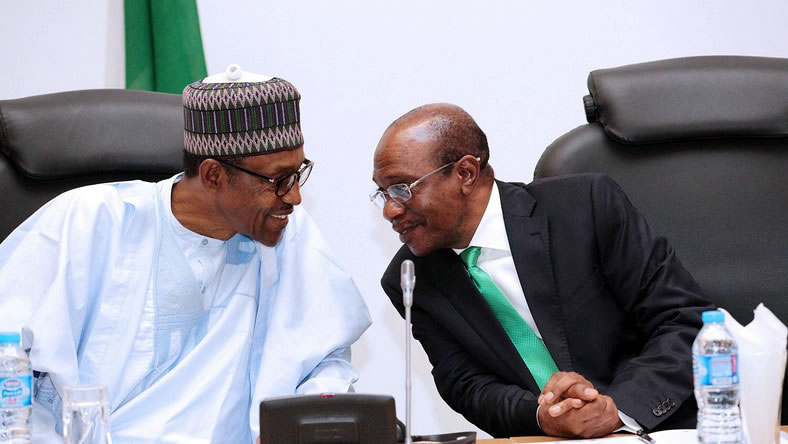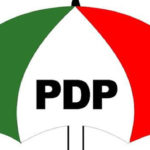
THE Vice President, Professor Yemi Osinbajo, last week returned the issue of floating the nation’s currency, naira, to the front burner, when, while speaking at the Mid-Term Ministerial Performance Review Retreat, he called for a review of the Central Bank of Nigeria’s (CBN) foreign exchange management strategy on the basis that the naira value “is artificially low” and impedes the inflow of investments.
Osinbajo had said, “As for the exchange rate, I think we need to move our rates to be as reflective of the market as possible. This, in my own respective view, is the only way to improve supply.
“We can’t get new dollars into the system, where the exchange rate is artificially low. And everyone knows by how much our reserve can grow. I’m convinced that the demand management strategy currently being adopted by the CBN needs a rethink, and that is just my view.”
One of the major challenges of Mr Godwin Emefiele’s CBN is striking an equilibrium between the exchange rate and capital mobility.
This has led the apex bank to experiment with a number of policies before adopting a managed FX floating system, which enables it to play a guiding role in determining the value of the naira, rather than subjecting it strictly to the whims and caprices of market forces.
The CBN has hinged this strategy on the precarious state of the economy, arguing that if left to market forces, the naira would be worsted and Nigerians would be the worst for it. To buoy the economy and strengthen naira, the CBN has embarked on a series of interventions in different sectors of the economy, such as agriculture, power and aviation.
Mr Emefiele, had at different times, expressed his aversion to floating the naira because of its effect on the poor. During an interaction with stakeholders in Lagos penultimate year, Emefiele explained why he had resisted the call to float the naira, saying “A flexible exchange rate would not favour the poor. I am committed to protecting the naira. We cannot allow the naira to float freely.”
However, the strategy deployed by the apex bank has created a flourishing business for those engaged in dollar round-tripping. Given the wide gap between the official and parallel market rates of the naira, there is an arbitrage opportunity of N160 per dollar.
Osinbajo alluded to this in a follow up statement by his media aide to explain his address at the retreat, saying the current naira exchange rate benefits only those who are able to obtain the dollar at the official rate of N410 only to turn round and sell to the parallel market at N570, making 40 per cent profit in the process.
As far back as 2016, a former Emir of Kano, who is also a former CBN governor, Alhaji Lamido Sanusi Lamido, had said that the nation’s forex management system created room for corrupt enrichment.
Sanusi, who spoke during a lecture at the 15th Joint Planning Board, JPB, and National Council on Development Planning, said: “With my background in the banking sector, and now a royal father, I can sit in my garden and make billions through forex market without sweat. This is how most of those you call billionaires made their money.”
The CBN itself acknowledged that the system it instituted was being abused by fraudsters to plunder the nation. In a circular titled, “Publication of names of Defaulters of a CBN policy on sale of Forex for PTA/BTA” which was signed by the bank’s Director, Banking Supervision Department, Haruna Mustafa, the CBN said it had received and noted with concern reports of sharp practices by some customers to circumvent its policy on the sale of forex for overseas personal and business travel.
“Some of these unwholesome practices include the use of fake visas and cancellation of air tickets after purchase of PTA/BTA. This trend, if not curbed, portends risk to the integrity and stability of the forex market.
“Consequently, further to the various measures already put in place, all banks are hereby directed to publish on their websites the names and BVN of defaulting customers who present fake travel documents or cancel their tickets and fail to return the purchased PTA/BTA within two (weeks) as stipulated in the customer declaration form signed by them.”
Manufacturers have also complained that despite the avowed readiness of the CBN to make FX available, they have been resorting to the parallel market to source more than 50 per cent of their forex needs because of the bureaucracy involved.
This has shot up the cost of production and has contributed to the rising inflation the country is battling with.
The CBN has expended a huge sum of money on defending the naira. According to documents and reports accessed on the CBN website, between January and December 2016, the CBN defended the naira with about $11.7 billion.
The figure rose to $15.8 billion in 2017, was $36.6 billion in 2018, hit $34.3 billion in 2019 and came down to $27.84 billion in 2020.
In the first quarter of 2021, the CBN spent $4.37 billion to defend the naira, amounting to over $130 billion. But that has not kept the naira value up.
Rather, the naira has been subjected to a series of devaluation, the most recent being the adoption of the Nafex rate by the CBN as the official exchange rate for the naira, thus devaluing the currency by 7.6 per cent.
Financial and economic experts have argued that since Nigeria has over the years consistently defended the naira to no avail, why does the country not allow the currency to find its value for Nigeria to decide which of the options is better?
Dr Muda Yusuf, a former Director-General of the Lagos Chamber of Commerce and Industry, is of the opinion that Nigeria would be better off with a market-based forex rate regime. According to him, a market-determined forex regime is more sustainable, transparent, predictable, and favourable for investors than the fixed forex management, administrative allocation and over-concentration on demand management.
He said, “If we allow the market to play a bigger role in the FX market in Nigeria, we will likely see an adjustment from the supply and demand side, that should lead to an equilibrium.”
Similarly, a former Deputy Governor of the CBN, Professor Kingsley Moghalu, in a statement, counseled the CBN to allow market forces to determine the naira value. He said, “We have two options. One is to let the naira find its level in the market. In other words, the central bank should stop subsidizing the currency. While there will likely be an immediate spike in the price of the dollar, this move will have two advantages. The first is that, because Nigeria has a big, profitable economy and market, dollars will likely swamp the market seeking profits for investors. When this happens, the laws of demand and supply will work in favor of the Naira. Alongside this, maintaining different exchange rates for different kinds of transactions must end. This is called rate convergence.
“The second, and more important benefit is that, since the current practice of the CBN pumping dollars in the FX market (from the reserves, which also depleted them) is essentially a subsidy for imports, which has made Nigeria more and more import dependent, letting go of the subsidy on the Naira will refocus the economy towards exports.
“This will create an incentive for complex production of a quality that can be competitive in the international market. Accompanying this must be the right trade policies to support and create such incentives for massive exports of finished, value added goods from Nigeria.”
A member of the Presidential Economic Advisory Committee, Mr Bismarck Rewane, speaking on the options open to the CBN in saving the naira, said “One of the options is to simultaneously allow banks to retail dollars as they have done in the past and make BDCs engage in retailing the same but at a buy rate different from today’s subsidized rate, i.e buy dollars from the CBN at the parallel market rate less a N10 premium. For example, if the parallel market rate is N500/$, the purchase rate from the CBN will be N490/$. If the BDCs sell at N550/$, the CBN increases its rate for BDCs to N540/$. That will be the same retail rate at the banks.
“It will certainly reduce the demand for dollars and it must coincide with an increase in dollar supply from the CBN. This way, the naira will appreciate towards the ever elusive fair value or the REER (Real Effective Exchange Rate), which today is anywhere between N470 and N490/$.”
The guiding principle for CBN on the FX strategy to adopt should be what is best for the country. Right from the 1980s when the foreign exchange market was said to have been liberated, the CBN has always defended the naira.
But how has that helped the economy? How has it served the currency? How has it improved the life of the average Nigerian?
A paper, Foreign Capital Inflows and Poverty Reduction in Nigeria: An Implication for Sustainable Development, published in April 2021 by Johnson Kolawole Olowookere, Samson Oluwole Olowo, Oladotun Toriola Mabinuori and Timothy Ayomitunde Aderemi, all of The Bells University, Ota, Ogun State, found out that foreign capital inflows such as Foreign Direct Investments (FDIs), Foreign Portfolio Investments (FPIs) and remittances contributed immensely to the reduction of poverty in Nigeria.
The paper thus recommended to policymakers that to achieve poverty reduction, foreign capital inflows such as remittances, FPIs and FDIs should be given priority, adding that only policies that facilitate the consistent inflow of these variables should be embarked upon by the Nigerian policymakers. The question to CBN is does defending the naira engender foreign direct investment?
YOU SHOULD NOT MISS THESE HEADLINES FROM NIGERIAN TRIBUNE
Lagos Is Second Least Liveable City In The World For 2021
Lagos is the second least liveable city in the world for the year 2021. This is according to the most recent annual ranking put together by the Economist Intelligence Unit (EIU)…
CLAIM 1: A Twitter user claims UNICEF said any efforts to block children from accessing pornography might infringe their human rights.
VERDICT: MISLEADING!
WATCH TOP VIDEOS FROM NIGERIAN TRIBUNE TV
- Let’s Talk About SELF-AWARENESS
- Is Your Confidence Mistaken for Pride? Let’s talk about it
- Is Etiquette About Perfection…Or Just Not Being Rude?
- Top Psychologist Reveal 3 Signs You’re Struggling With Imposter Syndrome
- Do You Pick Up Work-Related Calls at Midnight or Never? Let’s Talk About Boundaries






